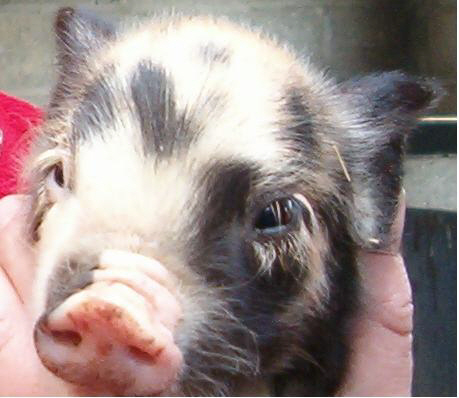|
OAK HOUSE FARM KUNE KUNES Tel: 01759 368556 Email: franwaldron@hotmail.com |
|
ABOUT KUNE KUNES Kune Kune pigs are delightfully friendly little pigs, originally kept by the Maoris of New Zealand for their meat, Kune means 'fat and round' in Maori! In the 1970's they came extremely close to extinction, and had it not been for two wildlife park owners (Michael Willis and John Simster), they would have died out altogether. These two men bought every Kune Kune they could find in New Zealand, amounting to only 18 pigs, and bred from this stock to revive the breed that is now in great demand. Kune Kunes almost always have a placid temperament, are easy to handle, good mothers and are always pleased to see you. Pigs are also very intelligent animals, we have trained ours to sit for apple treats and they come running when called. They are grazing animals and are not as large as most pig breeds, they rarely reach over 30" high or 220llbs in weight so are an ideal smallholders or first time pig keepers pig. They can be covered from snout to trotter in long, thick hair, which can be straight, wavy or curly, and which ranges in colour from black, through brown, ginger, cream and white. Their build comes somewhere in-between the heavy-set commercial meat pig (such as the Cumberland or Lincolnshire) and the short pot-bellies, such as the Vietnamese variety. They have a medium-sized head, usually with semi lop ears and a thick snout. One unusual feature, found in both the boars and the gilts, are the Piri Piris - two fleshy tassels that dangle underneath the chin.
Information about the history of Kune Kunes is reproduced with kind permission from The Kune Kune Society |
|
| © The Waldrons @ Oak House Farm |
